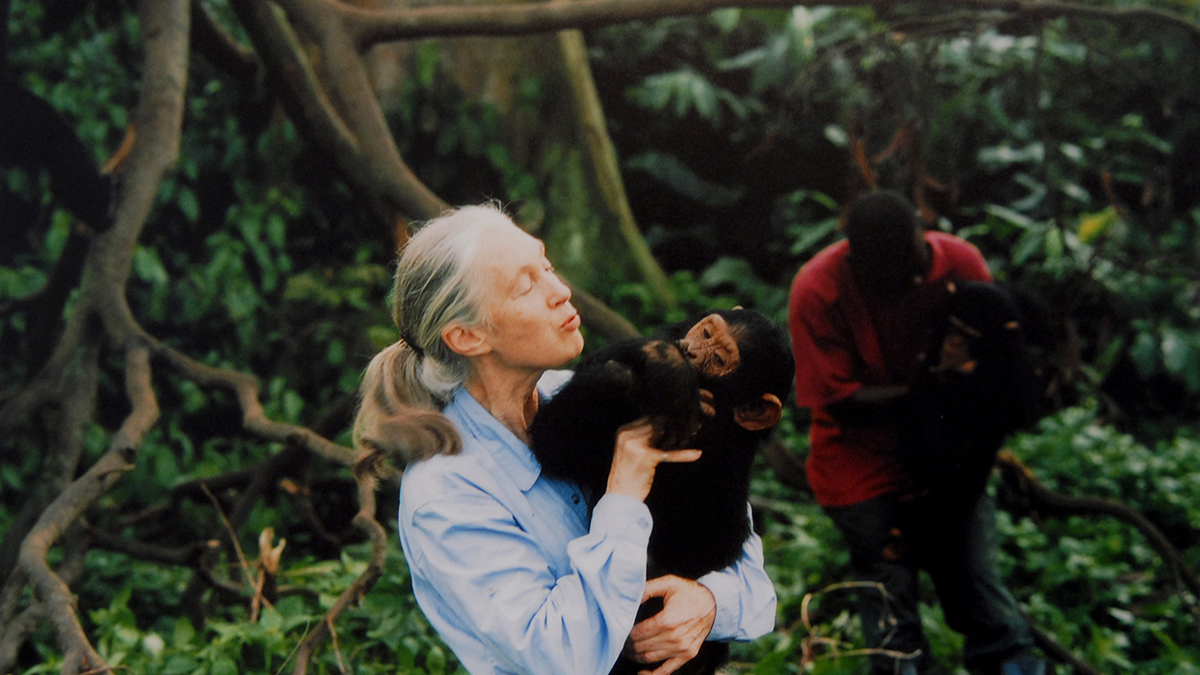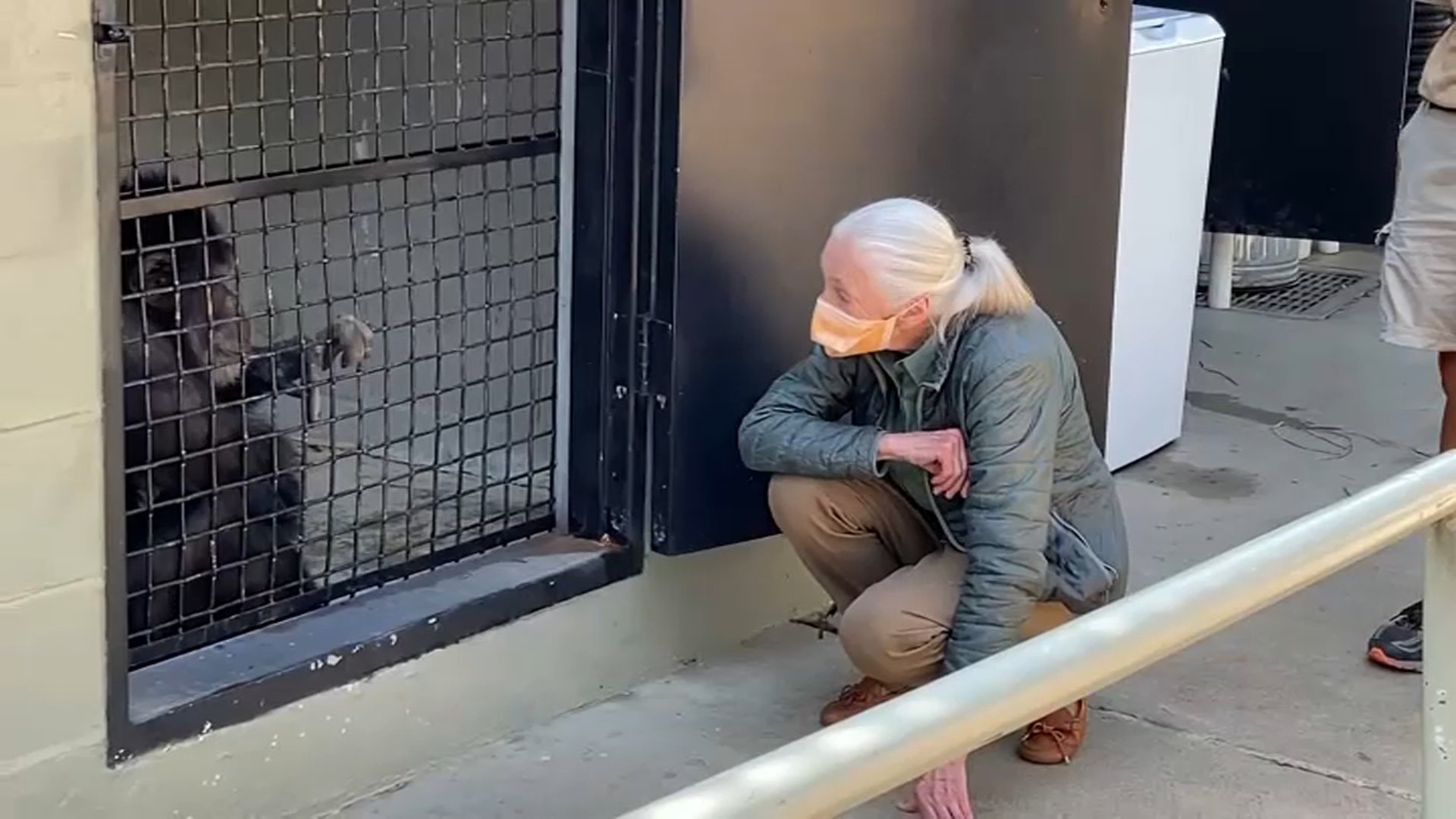Dr. Jane Goodall, a primate researcher and humanitarian whose up-close work with chimpanzees made her an international icon, left behind many friends and associates in Southern California when she passed away Wednesday morning.
In fact, she was scheduled to attend a tree-planting ceremony in Pasadena Wednesday when word of her death at 91 began spreading online.
“When I was driving over here, I got word that she had passed away,” said Los Angeles County Supervisor Kathryn Barger, an invitee at the event. “I can’t think of a more fitting way to remember her today than to plant this tree.”
The ceremony, attended by students, faculty, teachers and others, happened on the EF Academy campus. Its stated goal was to commemorate “a greener, more resilient Los Angeles” in the wake of the devastating Eaton and Palisades fires last January.
Goodall had embraced conservation and efforts to combat climate change many years ago, but she is perhaps best remembered for her pioneering research into the world of African chimpanzees, recognized by many anthropologists as being among humanity’s “nearest living relatives.”
No discussion of the tree-swinging primates can be complete without mention of Goodall’s groundbreaking work, much of it documented on archival film footage. In thousands of hours of coverage, Goodall herself can be seen just a few feet away from the animals in their African habitats, clutching a still camera, with her notebook nearby.
At the time, seeing a woman in such a role was exceedingly rare – another way she made her mark in the biological sciences world.
In a recent interview, Goodall said of her life’s mission: “I want to be remembered for having helped people to understand the nature of animals – that they do matter and they do have a part to play in the scheme of things. They’re not just objects; they’re beings.”
In recent years, she had expanded her global influence, touring, writing books and speaking extensively, often through her non-profit Jane Goodall Institute. She fund-raised for environmental and humanitarian causes and always advocated for education access in remote parts of the world. Even into her late 80s, she continued to work hard for such causes.
Pasadena City Councilmember Rick Cole, another attendee at the tree-planting event, told reporters, “Her name was ‘Dr. Goodall,’ and she was ‘good for all.’”
The LA Zoo called Goodall a brilliant scientist and humanitarian who valued the natural world as it expressed sadness in a statement.
“She is rightfully credited with humanity’s understanding of chimpanzees, their dynamics, and natural behaviors as a result of her decades of invaluable research,” Zoo officials said, adding Goodall was a long-time supporter of the LA Zoo and visited many times over the years.
Zoo officials credited Goodall for their chimp habitat and husbandry program.
“The zoo’s troop of 16 chimps live in a complex fission-fusion society as they do in the wild because of Jane’s work,” the LA Zoo said in a statement. “While Dr. Goodall will be deeply missed, her contributions to primate conservation, her passion for wildlife, and her research lives on in the countless people she touched along her journey, including those in Los Angeles and at the Los Angeles Zoo.”
The Marine Mammal Care Center Los Angeles also commemorated Goodall in its statement, saying her dedication to wildlife conservation has been an inspiration.
“Jane’s legacy reminds us all that every voice matters, every action counts, and every living creature deserves care and respect,” the center said in a statement. “Her work showed us that compassion and science together can change the world.”

Want more insights? Join Working Title - our career elevating newsletter and get the future of work delivered weekly.

